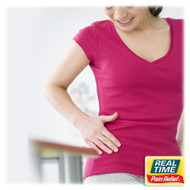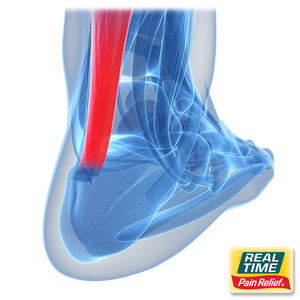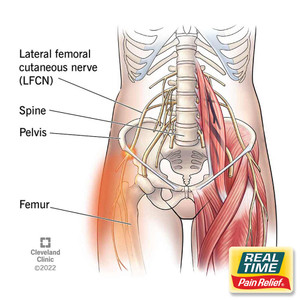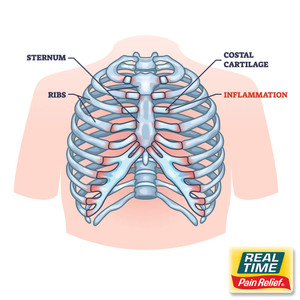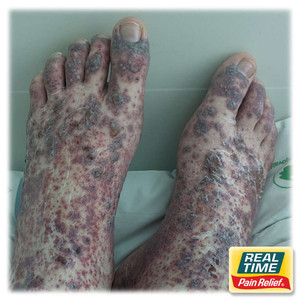5 Tips to Reduce Hip Pain
14th Sep 2022
Your hips play a vital role in everything from standing to walking. If hip pain develops, it can interfere with daily activities. Here are 5 tips to help you get relief from hip pain!
Causes of Hip Pain
Determining the underlying cause of hip pain is important for effective treatment.
Hip pain can occur due to trauma to the area. For example, stress fractures or dislocation can develop from a fall or collision. Problems with surrounding tissues, joints, and muscles may also lead to hip pain, however, it is much more common for hip pain to develop due to an overuse injury.
The following causes may lead to hip pain:
Arthritis
Arthritis is actually more than one disease, but the most common type that affects the hip is osteoarthritis. Osteoarthritis involves the gradual breakdown of cartilage in the joints. It leads to inflammation, stiffness, and pain. Usually, signs of osteoarthritis occur in middle-aged or older adults.
Bursitis
Bursitis of the hip is also a common cause of pain. The hip has two major bursae one on the inside of the hip, and one on the outside. The hip bursa act as a cushion between the muscles and joints. Over time, the hip bursa can become inflamed and irritated leading to hip discomfort.
Muscle strain
The hip is involved in activities, such as running, walking, and rotating. Strenuous activities and vigorous sports can place added stress on the muscles surrounding the hip joint and cause pain.
Tendonitis
Tendons join your muscles to your bones. When the tendon becomes inflamed or irritated, the condition is called tendonitis. Hip tendonitis can occur due to an injury or from repetitive movements, such as running.
Symptoms of Hip Pain
Symptoms of hip pain can affect one or both sides of the body. The pain may come on suddenly or occur gradually over time. The exact symptoms of hip pain may vary slightly depending on the cause. But typically, symptoms may include:
- Pain that is aching, burning, or sharp
- Pain that is worse after sitting for a while or first thing in the morning
- Increased pain with activity
- Pain that leads to a limp when walking
Although anyone can develop hip pain, it is more common as people age. Being overweight is also a risk factor. Participating in high impact sports that involve running or jumping also increases your risk of developing hip pain.
Relief for Hip Pain
If you have hip pain, the sooner you start treatment, the better. Treatment may prevent the condition from becoming worse. If possible, limit activities that increase discomfort to allow the hip time to heal.
Medical treatment for hip pain may include physical therapy and steroid injections. Over-the-counter, anti-inflammatory medication may also be recommended. But use these types of pain relievers with caution. They can have side effects and be hard on your digestive system.
In many cases, home treatment is effective at decreasing pain.
Consider the following tips for relief of hip pain:
#1) Consider Changing Your Sleep Position
The way you sleep can make hip pain worse, so changing positions may help. If possible, try to sleep on your back, which reduces compression between your hips. Another option is to sleep on your side with a pillow between your legs to support your pelvis, spine, and hips.
#2) Stretching and Strength Training
Depending on the cause of your hip pain, stretching and strength training exercises can help. For example, stretching the hip muscle may decrease pain from hip bursitis. If the pain is due to hip arthritis, building muscles around the joint with strength training moves may help. Get the green light from your doctor before exercising the area and ask about specific exercises you should perform.
#3) Consider a Joint Supplement
A joint supplement can help reduce hip pain due to osteoarthritis. A joint supplement with ingredients like ApresFlex Boswellia Serrata can help improve joint comfort, support joint structure, and increase joint mobility and flexibility. Other great ingredients to look for include Ginger Root Extract, Collagen, and turmeric.
#4) Try Ice or Heat
Ice is often recommended when an injury first occurs. With some causes of hip pain, such as arthritis and tendonitis, the injury is gradual. But ice can still be effective in decreasing pain and inflammation. Apply cold packs to your hip area for about 20 minutes every four or five hours. Some people have better results with heat. Place a heating pad on the hip for about 10 to 15 minutes several times a day. Alternate heat and ice and see what provides more relief.
#5) Use a Topical Pain Relief Lotion
Topical pain relievers can be a great way to treat hip pain regardless of the cause. Topical pain relief lotions containing menthol or trolamine salicylate may help to relieve pain without the side effects of oral pain medications. If you don’t like a heated sensation then you can find homeopathic pain relief lotions that contain arnica as the active ingredient. The best topical pain relief lotions contain extra ingredients like glucosamine, capsicum, turmeric extract, willow bark, calendula, and more.
For over 20 years, families across the U.S. have turned to Real Time’s lotions and creams for PAIN RELIEF YOU CAN TRUST®. From Lifestyle Essentials, through our Nujuvena line, to Pain Relief Formulas, Real Time has you covered.
Sources

